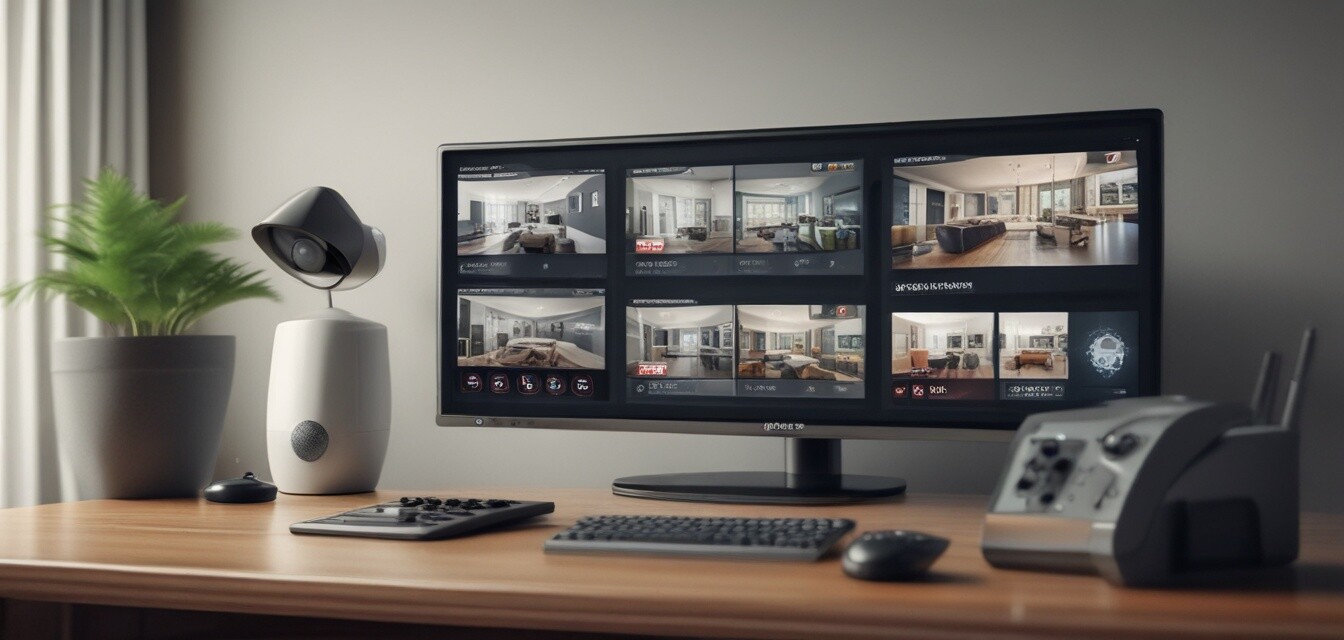
How to Set Up a Home Security Monitoring Service
Key Takeaways
- Understand the different types of monitoring services available.
- Determine your needs and budget before selecting a service.
- Follow step-by-step instructions for the setup process.
- Consider integrating smart home capabilities for enhanced security.
- Regularly review your monitoring service to ensure its effectiveness.
Setting up a home security monitoring service can seem daunting, but with a clear plan and proper guidance, it can be a straightforward process. Effective home security is about being proactive to protect your loved ones and property. Below, we provide step-by-step instructions on how to set up a monitoring service that meets your needs.
Understanding Home Security Monitoring Services
Before diving into the setup, it's important to understand the different types of home security monitoring services available:
| Type of Service | Description | Pros | Cons |
|---|---|---|---|
| Professional Monitoring | A service where trained professionals continuously monitor your security system. | Quick response to emergencies, expert assistance. | Monthly fees can add up. |
| Self-Monitoring | Allows homeowners to monitor their own security systems through apps or alerts. | No monthly fees, control over the system. | May lack immediate response to emergencies. |
| DIY Monitoring | Homeowners set up their own systems and decide when to call for help. | Customizable, potentially lower costs. | Requires technical know-how. |
Step-by-Step Instructions for Setting Up Your Home Security Monitoring Service
Step 1: Evaluate Your Security Needs
Identify what you want to protect, whether it's just the front door or the entire property. Understanding your security needs helps you choose the right system.
Step 2: Research Monitoring Options
Explore different monitoring services, including DIY options and professional services. You can check out our detailed buying guides on home security buying guides to help you make an informed choice.
Step 3: Choose the Right Equipment
Depending on your needs, select the necessary equipment. Here are common items to consider:
- Security Cameras
- Motion Sensors
- Control Panels
- Alarms
- Smart Home Integration (e.g., smart doorbell cameras)
Step 4: Set Up Your Equipment
Once you have the equipment, follow the manufacturer's instructions to set up the system. Pay attention to the placement of cameras and sensors for optimal coverage. For more installation tips, refer to our home safety tips.
Step 5: Configure Your Monitoring Settings
Whether you opt for professional or self-monitoring, make sure to configure the settings according to your preferences. Typically, this includes:
- Setting up notifications and alerts
- Defining alarm response protocols
- Integrating with other smart home devices
Step 6: Run Tests on Your System
After you set up your system, it’s crucial to run tests to ensure everything is functioning properly. Check if your alerts are being received and that the cameras are capturing the desired areas.
Step 7: Regular Review and Maintenance
It's essential to regularly review your security system settings and performance. Check for software updates and ensure that your equipment is properly maintained to maximize effectiveness. For updates on the latest security technology trends, visit our latest security technology trends page.
Tips for Effective Home Security Monitoring
- Ensure that you have proper lighting around your property.
- Regularly change passwords for your monitoring system.
- Keep up with any software or firmware updates for your devices.
- Educate your family on how to use the security system properly.
- Make use of signage to indicate your home is under surveillance.
Pros
- Enhanced safety for your home and family.
- Potential for lower insurance premiums.
- Peace of mind knowing your property is monitored.
Cons
- Initial investment costs for equipment.
- Monthly fees associated with professional monitoring services.
- Time required for setup and maintenance.
Conclusion
Setting up a home security monitoring service is a proactive step in protecting your home and loved ones. By following these steps, you will establish a robust monitoring system tailored to your needs, giving you peace of mind. Always stay updated with the latest trends in home security and be vigilant in maintaining your system for optimal effectiveness.
